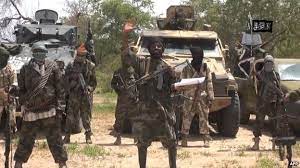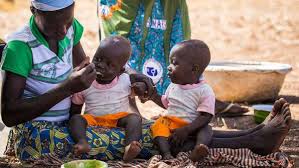According to UN humanitarian director Martin Griffiths, the Islamic extremist insurgency in northeast Nigeria is a “very, very dangerous (and) highly threatening” problem that will require more than $1 billion in aid in 2022 to help individuals affected by the decade-long battle.
Griffiths, the head of the United Nations Office for the Coordination of Humanitarian Affairs, urged the world not to forget the ongoing devastation caused by Boko Haram and its offshoot, the Islamic State West Africa Province, which is blamed for killing tens of thousands of people and displacing millions.
“This is a very different kind of operation, and it’s also very difficult to dissuade,” Griffiths said in Abuja, Nigeria’s capital. “It’s a terrible and clear and present danger to the people and it’s a priority for the administration,” Griffiths said. “The world must remember that this is a tragedy that must be resolved.”
In 2009, Boko Haram, a group of Nigerian Islamic extremists, launched an insurgency in the country’s northeast to combat western education and establish Islamic Shariah law. Their insurgency has spread to the neighboring West African countries of Cameroon, Niger, and Chad throughout the years. When Boko Haram abducted 276 schoolgirls in Chibok village in 2014, they received international outcry, triggering the #BringBackOurGirls campaign. More than a hundred pupils are still missing.
According to the United Nations Development Program, approximately 35,000 people have died as a result of the fighting. “An additional nine persons, predominantly youngsters, have died due to a shortage of food and resources for each casualty,” the United Nations agency reported in a report released in June last year.
The Nigerian military continues to try to put a stop to the carnage, particularly in northeastern Borno state and the Lake Chad region, but the battle has lasted for years.
A video released this week by a group affiliated with the Islamic State group showed scores of young militants exercising in open fields and being trained in classrooms. According to Vincent Foucher of the International Crisis Group, the film sends a “clear” message that extremists “are here to stay” and “a new generation is on the way.”
Nigerian security forces have also increased their air capability, “making it difficult for (the Islamic State offshoot) to get away with the big attacks it carried out two or three years ago,” according to Foucher.
It’s unclear when displaced people will be able to return to their homes, according to the UN humanitarian chief, but it’s a critical goal to offer people hope “that this isn’t an indefinite exile from their villages.”
According to him, the United Nations forecasts that Nigeria’s northeast will require more than $1 billion in development assistance in addition to government spending by 2022. The monies are required to provide food and medical care to the millions of people who have been displaced, as well as those who have remained in their homes but are at risk of attack. Following conversations with government officials, Griffiths stated that Nigerian officials “understand this is not a simple cure.”
Beyond the northeast, violent attacks are being carried out in the northwest and central areas of Nigeria by armed groups who used to be nomadic cattle herders and are embroiled in a decades-long dispute with Hausa farming communities for access to water and grazing territory.
The U.N. official stated that Nigeria’s war against radicals “cannot be won on the battlefield,” and advocated more community development measures.
“You win civil wars in the imaginations of the people,” Griffiths explained. “It doesn’t matter how much else you have on your side if you don’t have the communities on your side.” You’re not going to make peace.”




















